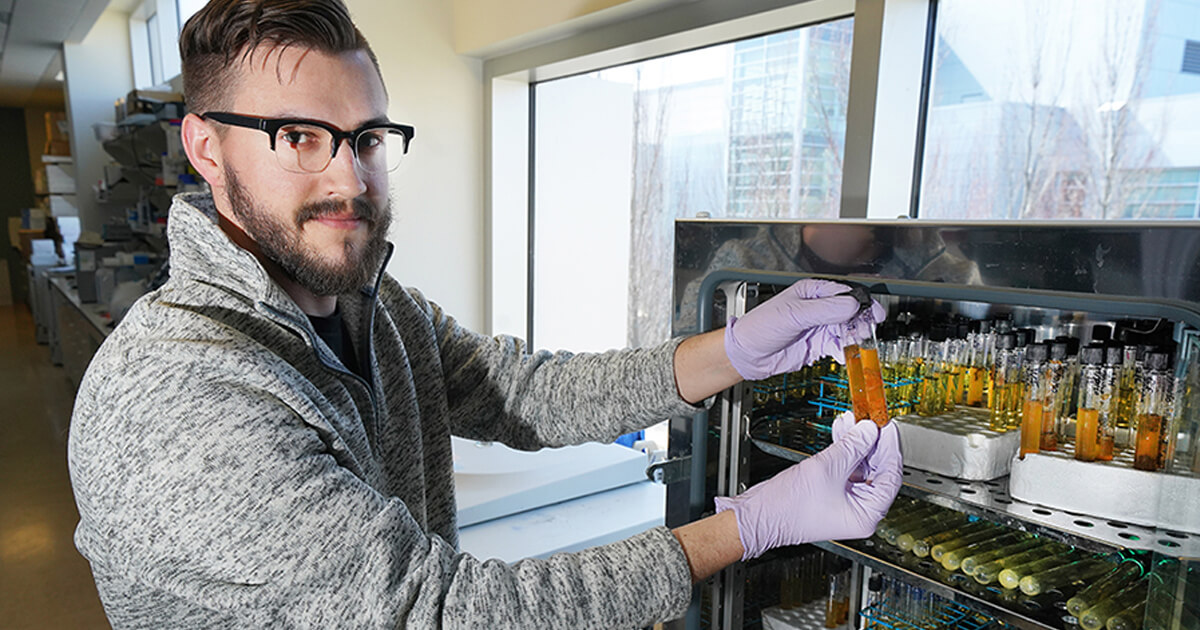Graduate researcher makes the most of fungi
Ethan Hillman likens his arrival at Purdue to speed dating. Hillman, who chose the Purdue Interdisciplinary Life Science (PULSe) program for graduate study, rotated through multiple labs, looking to find the right match for the next five years.
“I liked the idea of not being on one set path – of merging biology, chemistry and engineering.” The rotations influenced Hillman’s research choices. “I was in a termite microbiology lab first, and then I did some regenerative medicine/tissue engineering,” said Hillman. “Ultimately, my research combined these different viewpoints.”
In spring 2016, he joined the new lab of Kevin Solomon, assistant professor of agricultural and biological engineering.
“When I came to Purdue, I never had in mind to be in my advisor’s lab, because it didn’t exist yet,” noted Hillman. “My advisor helps me grow in different ways toward what I want to do in my career.”
Hillman, a New Castle, Ind. native, previously attended Anderson University where he completed a double major in biology and chemistry.
Now, Hillman is interested in the versatility of microorganisms to produce useful products. “I engineer anaerobic fungi to convert agricultural waste into useful biofuels and pharmaceuticals.” To do so, he collects fungus from livestock and from zoo animals before isolating the different samples in the lab.
“These fungi naturally degrade plant biomass in the GI tracts of herbivores; however, I’m adapting them for bioproduction applications,” explained Hillman.
“I’m very interdisciplinary; I have trouble staying in one field,” said Hillman, a trait that makes him well-suited to his research, which involves genetics, microbiology, biochemistry and engineering. “I like discovering the underlying mechanisms of how different microbes and microbial communities are acting, and how we can leverage that from an engineering standpoint.”
Hillman says his next step is a postdoc where he can refine techniques to better understand specific microbial communities. Thanks to his advisor, Hillman feels prepared for a career in academia. “He’s been doing a lot to get me exposure to the different components of that, so when I move on I’ll be well equipped.”






